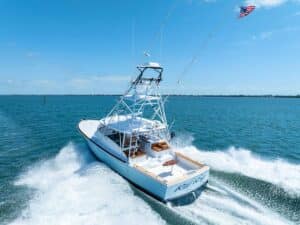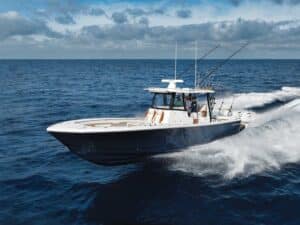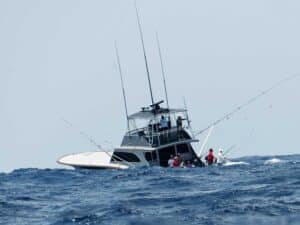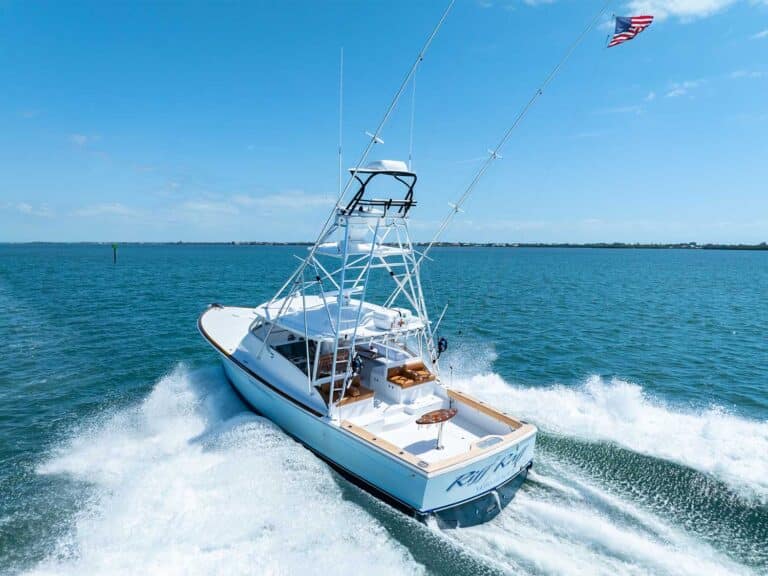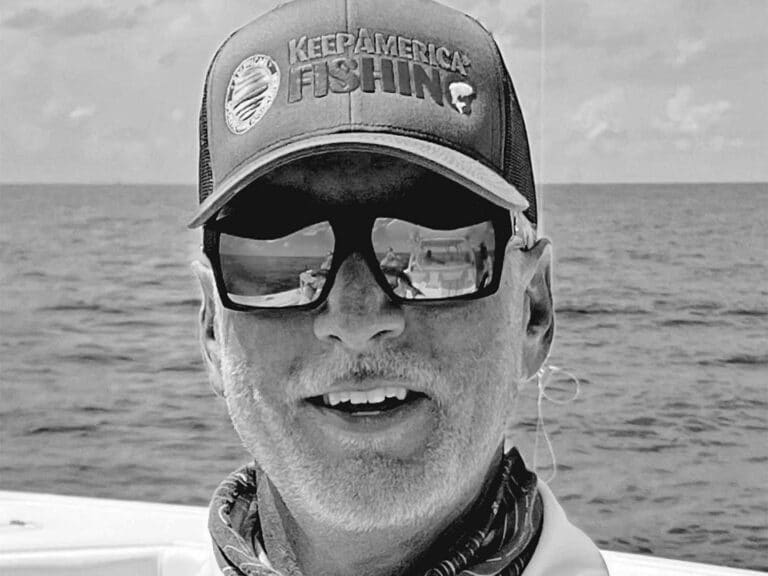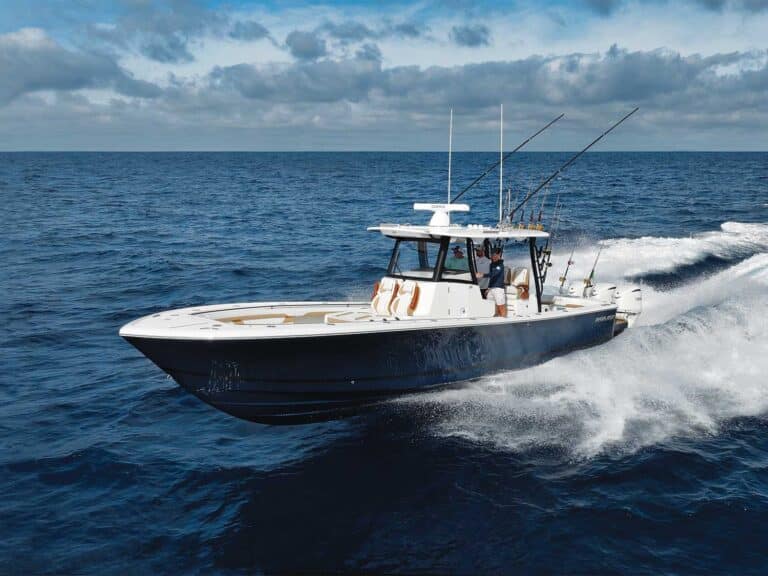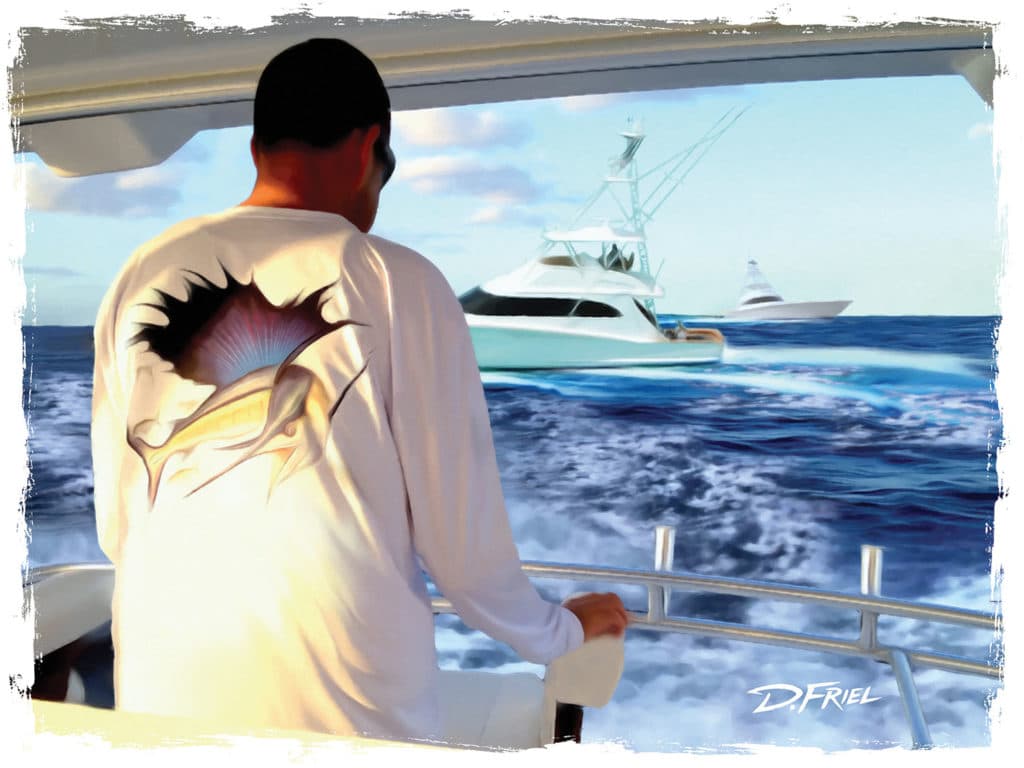
In the early 1980s on the North Drop off the U.S. and British Virgin Islands, if you raised a marlin and it faded off or you missed it, you would make a circle or two over the area while the other boats trolling nearby would give you some space so that you could get another shot at that fish. There were only about 13 or 14 other boats out, all the captains respected each other, and we all abided by the U.S. Coast Guard’s Rules of the Road while fishing.
In case you need a reminder: “Rule 15, Crossing Situation: When two power-driven vessels are crossing so as to involve risk of collision, the vessel which has the other on her own starboard side shall keep out of the way and shall, if the circumstances of the case admit, avoid crossing ahead of the other vessel.”
After fishing in so many other countries during the late 1980s, I came back to St. Thomas in the early 1990s to fish the North Drop again. Now there were up to 30 boats fishing the edge and when you raised a fish and started to turn, the other boats would notice your turn and then drive right through the spot where you raised the fish. These new captains were extremely aggressive. As I would turn around and show them my port side, they would still drive right through, making me either stop or turn behind them to avoid cutting off their lures. They were not going to alter course.
One young captain almost took me out one day when I had the right of way, and we had a few words on the dock. Years later, he came up to me to apologize and we laugh about it today. He learned to abide by the Rules of the Road, even when fishing, not just when navigating the high seas.
Every morning at Tropic Star Lodge in Panama, there are up to a dozen 31-foot Bertrams trolling around in a small area trying to catch bait. They only have two lines out and they keep them pretty short, but they cut each other off sometimes and nobody says anything. I join in with my 48-foot boat and try to stay out of their way, but I need bait too. I respect them: This is their livelihood and I am a guest in their waters. By simply being respectful and patient, I am able to catch my bait and easily live-bait around them without any problems. I have fished in Australia, Hawaii and many other countries; the captains there treated each other with respect—they always use the Rules of the Road in crossing situations when they aren’t actively engaged with a bite or other encounters with billfish.
More on understanding the Rules of the Road.
Recently while fishing in tight quarters on the Costa Rica seamounts, all of the boats gave each other plenty of room, except one. We were cut off numerous times, and it got to the point where I stopped talking to the guy on the VHF; I was too damn mad and I knew I would go off on him and embarrass us both—so I figured I would talk to this jerk back at the dock. Besides cutting me off and making me stop to avoid a collision or getting my baits cut off, he would also come up on my port side then turn parallel, blocking me from turning to the left; now I had to make a larger circle to get back to the fish. People get really greedy when the fish are biting, and he was driving to block everyone.
Two days later, the guy—I can’t call him a captain—came up to me asking what the problem was. I explained that he did not know the rules and threw in a few more kind words for good measure. During my rant, he tried to apologize, but I could tell he had no idea what the rules were and that we are supposed to abide by them while at sea. There is no excuse for ignorance, or worse, knowing the rules and disregarding them.
